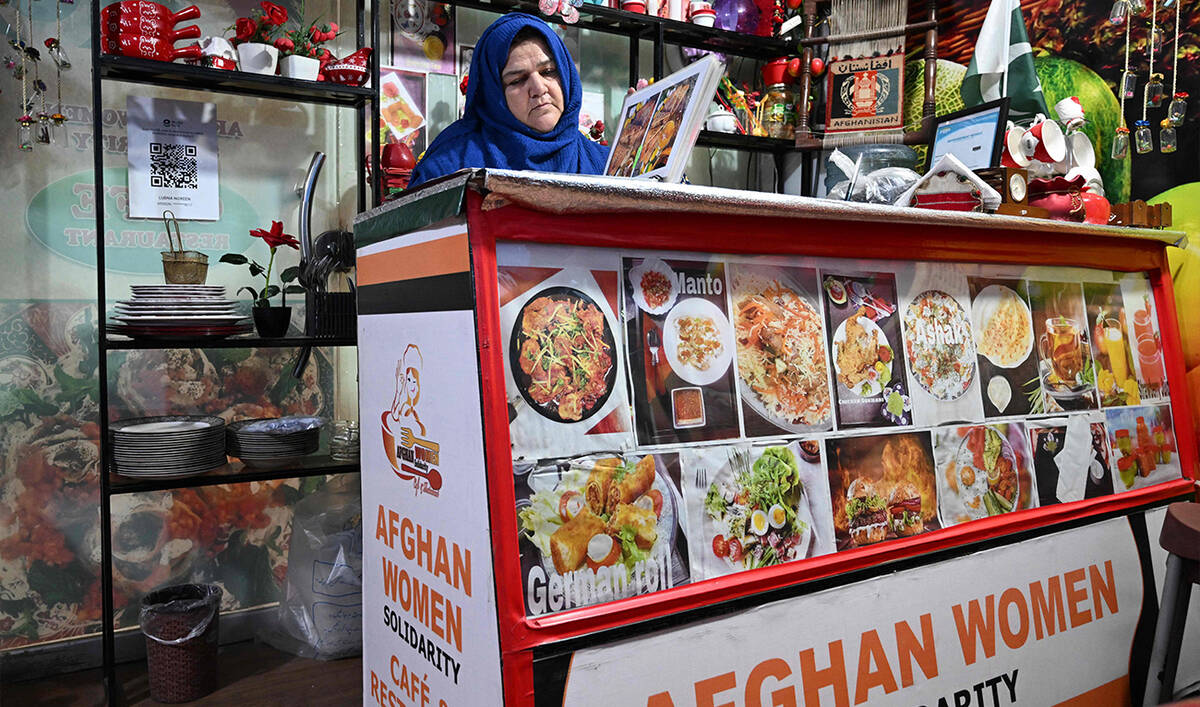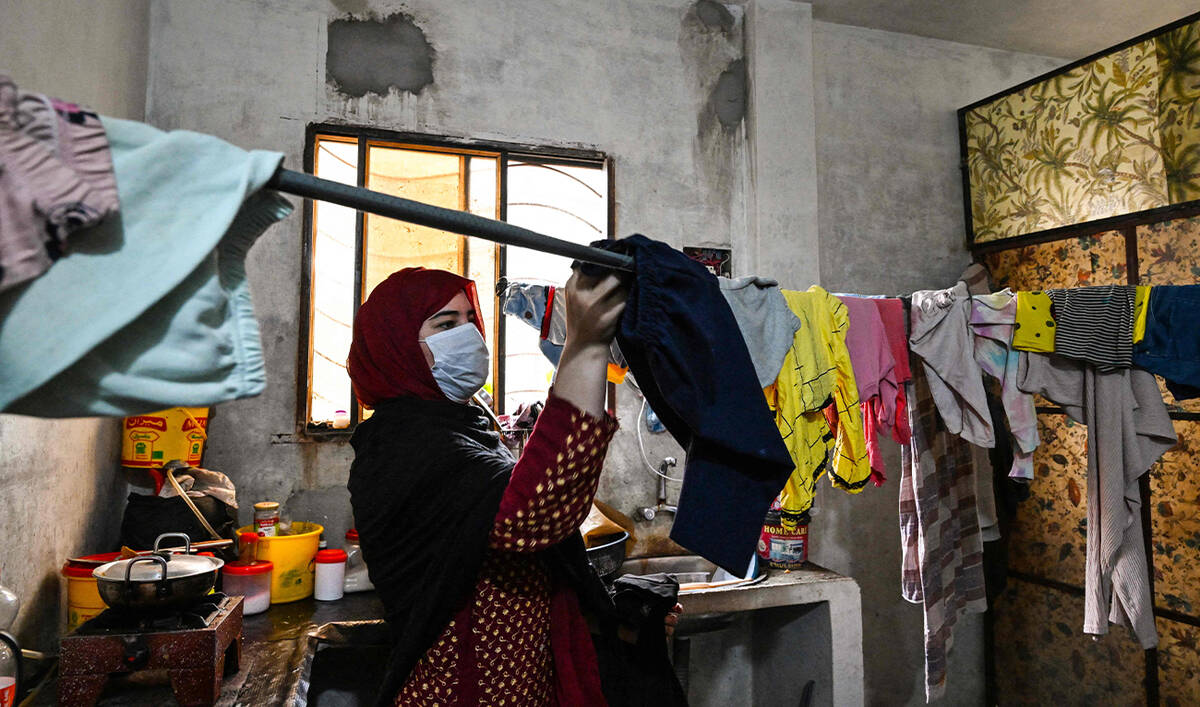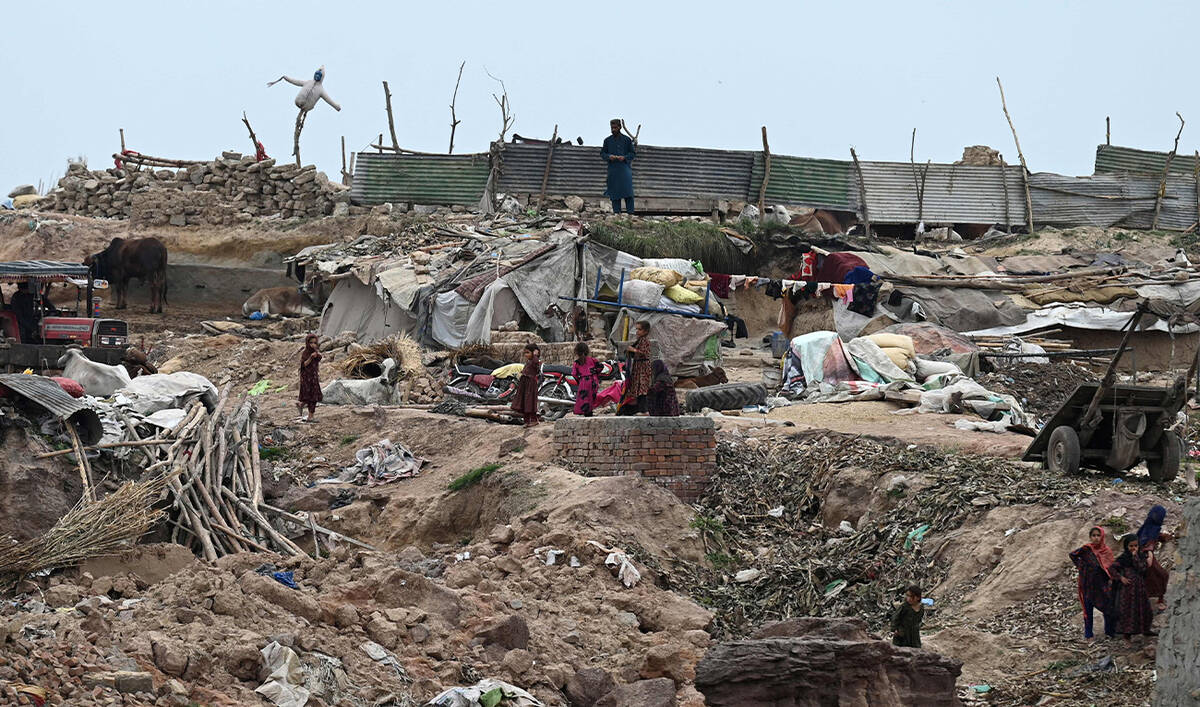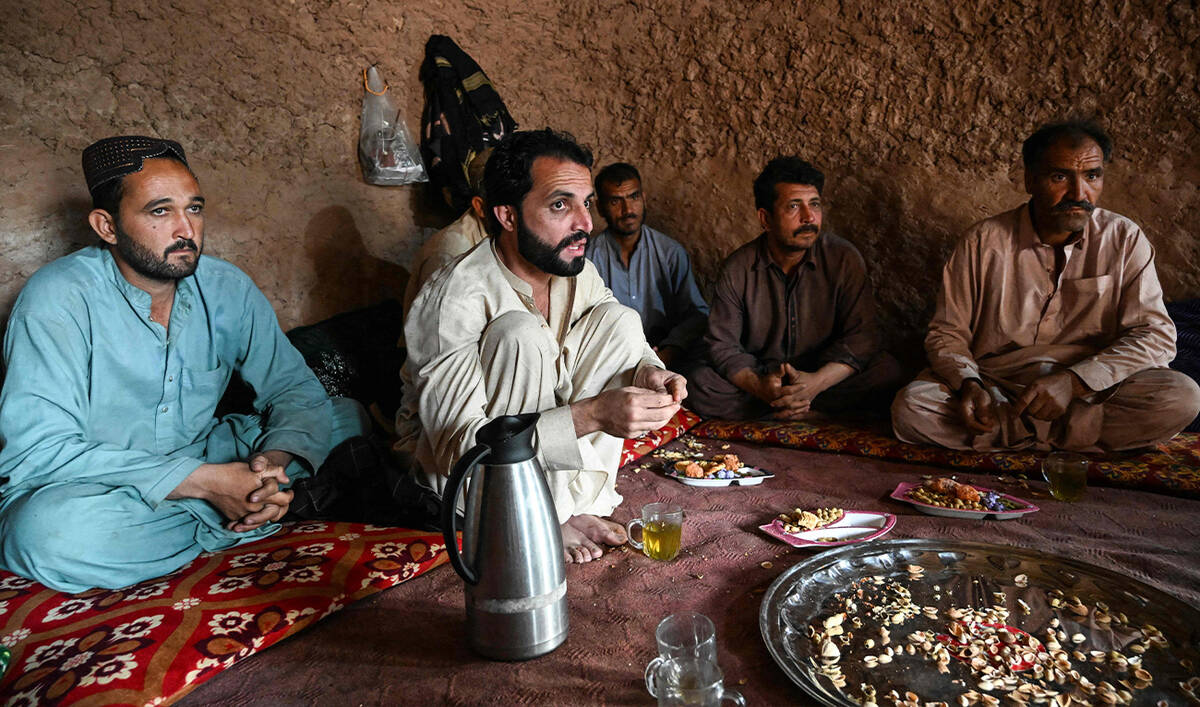KARACHI: Financial experts in Pakistan on Saturday warned of spiraling inflation of up to 40 percent in the coming months after official data revealed that weekly inflation in the country had touched 38.4 percent on an annual basis in the wake of a recent surge in fuel prices.
Pakistan raised the rates of petroleum products by up to 8.9 percent on Wednesday to implement prior actions agreed with the International Monetary Fund (IMF) to unlock a stalled $7 billion bailout program.
The weekly inflation, measured by Sensitive Price Indicator (SPI), recorded an increase of 2.9 percent for the week ending Thursday, February 16. The surge was primarily observed in the prices of energy and food items.
According to the data released by the Pakistan Bureau of Statistics (PBS) on Friday, petrol price increased by 8.8 percent, diesel 6.5 percent, five-liter cooking oil 8.7 percent, one-kilogram vegetable ghee 8 percent, chicken 7.5 percent, and 2.5-kilogram vegetable ghee 6.8 percent.
“In the coming months, the inflation rate is expected to increase by 35 to 40 percent due to the government’s decision to increase gas and electricity tariffs, hike in general sales tax, and the escalation in fuel prices,” Abdul Azeem, head of research at the Spectrum Securities, told Arab News.
“The price hike in [the Muslim fasting month of] Ramadan will also contribute to the inflationary pressure which is likely to increase by two percent, as we witnessed last year on a month-on-month basis,” he added.
Pakistan has been grappling with dangerously low forex reserves along with the impact of rapid depreciation of national currency against the United States dollar since an artificial cap on the exchange rate was removed last month.
The monthly inflation rate recently hit a multidecade high of 27.6 percent which, according to financial experts, can go as high as 40 percent in the coming months.
Asked about the overall fiscal year, analysts said they expected average inflation to be at about 30 percent.
“The average inflation rate for the current fiscal year is expected to remain at around 30 percent,” Samiullah Tariq, director research at the Pakistan-Kuwait Investment Company, told Arab News. “The high inflation rate will impact the purchasing power of people and eventually lead to consumption loss.”
As Pakistan and the IMF continue to negotiate for the completion of ninth review of the bailout program that has been on hold since November, the overall market sentiment is based on the assumption that the government would further jack up the policy rate in the coming days.
“With rising inflation, markets are expecting up to two percent increase in the interest rate,” Muhammad Sohail, CEO of Topline Securities, told Arab News. “High interest rate will curtail demand which may eventually led to lower inflation.”



















